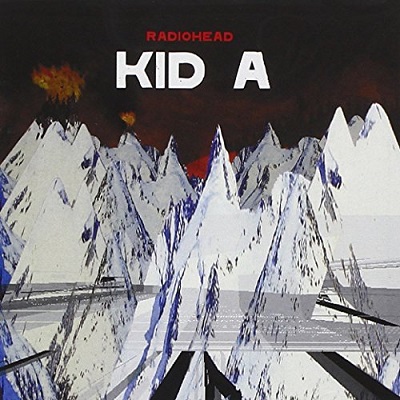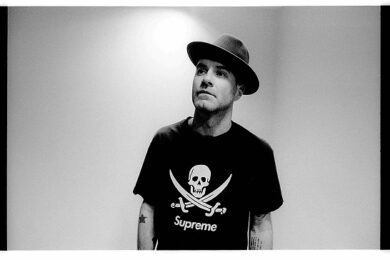4. RadioheadKid A

It’s difficult choosing just one album because they’re one of my favourite bands. The Bends is one of my favourite records and OK Computer was mind-blowing, but I think Kid A, in a weird way, kind of reinvented the wheel for how that music changed.
I remember me and Rich – who I did Never, Never, Land and War Stories with – we had this mad flat, like a 5,000-square-foot apartment in Old Street and we had a little studio in the corner. We’d have a mad weekend DJing at Fabric and then Monday night, every Monday on XFM, they’d play the entire new album of an artist that was coming out. They did Kid A and we just sat there, and the moment that ‘Everything in Its Right Place’ came on, it was like, “ah, fuck me!” They’d just reinvented the wheel.
Rather than capitalising on the sort of initial success of OK Computer in a creative way, in a sense of repeating that, they just totally showed that they were a band that were never going to be put in a box. In many ways, that record, I think, reinvented the way that we looked at bands of our generation.
I love Amnesiac as well, but I had to eliminate a lot of records from this process. As soon as we heard Kid A, we remixed it. We bootlegged and remixed ‘Everything in its Right Place’, played it in Fabric and then I did the first ever fabric DJ mix and they let me use it on the mix. That’s also part of my love of Radiohead – they’ve always been supportive and open.
What did it feel like to be able to do that with that record?
It was amazing. That track in particular – the impact it had on my culture was amazing. Occasionally with DJ-ing you get a record that transcends genres. New Order did it with ‘Blue Monday’, or you’ll get ‘Seven Nation Army’ by The White Stripes. ‘Everything in Its Right Place’ is one of those weird records where it’s coming from a different world, but every DJ’s playing it. When that record came out it was suddenly like everybody was bootlegging a version. And that was also like a change in DJ culture where you’d be playing in Fabric and you’d be playing records like The White Stripes or Radiohead, but remixing them, but in doing so it felt like creating a new thing.
I think that’s part of the change in how music has become so eclectic. Those records were the basis of modern-day eclecticism. It has always gone on, but I think for my generation onwards, those were the records that made it so you could actually be like “okay, you can be a guitar band but you can do this”, or, “you can be an electronic band and you can do these songs” or whatever. It’s weird how silly it seems now, but they were big deals at the time.


